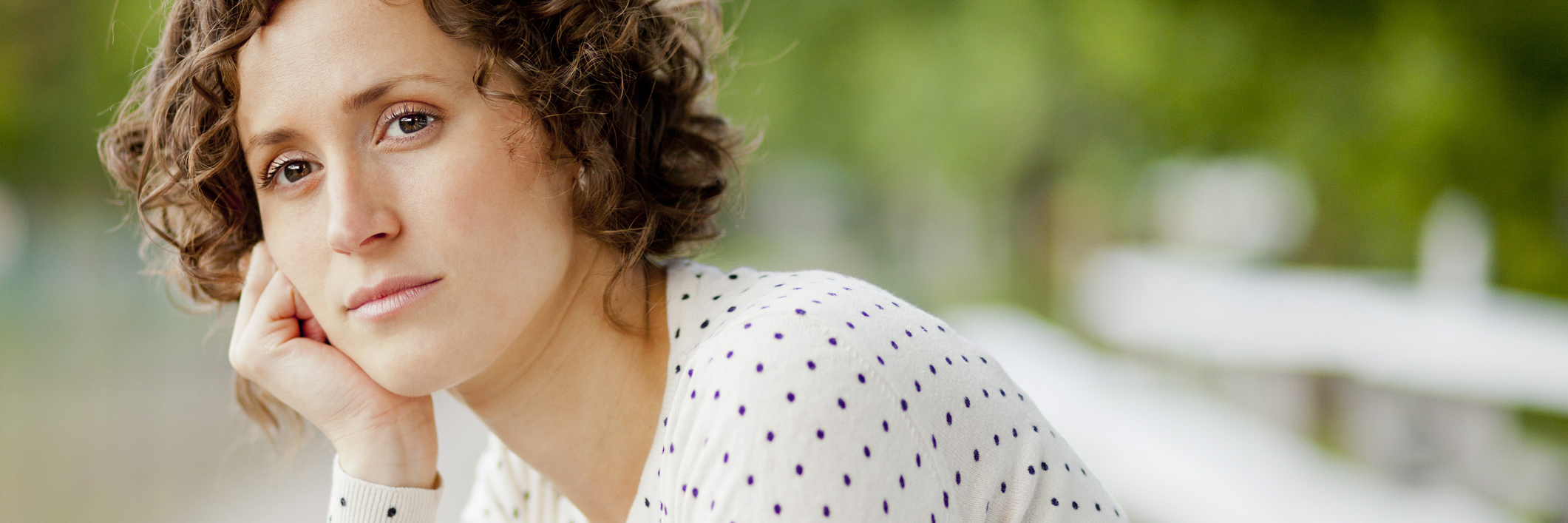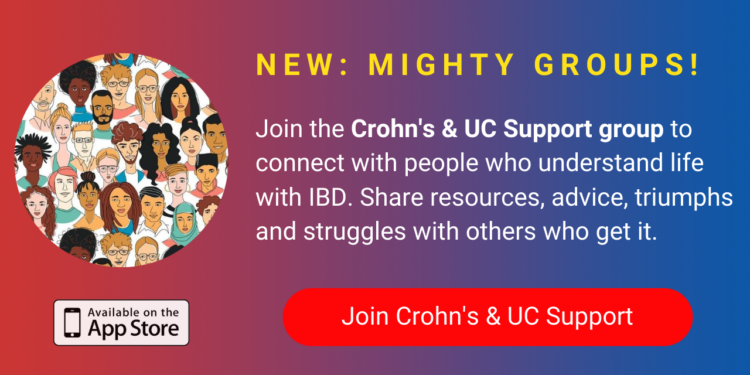I was fortunate once to hear a speech at a Crohn’s & Colitis Foundation dinner from a woman speaking on behalf of her young son, who lives with inflammatory bowel disease (IBD). She spoke so openly about how devastating it was to not only witness his struggle physically, but also emotionally at such a young age. After she was done, I gave her a hug, and we spoke at length about how no one really discusses how Crohn’s and ulcerative colitis can destroy your sense of self and emotionally challenge you. As with any chronic condition, I imagine, having minimal control over what might happen next can definitely overpower your will to have any hope some days.
I have always been an overly emotional person, a trait about me that’s often lost on family members and friends – even my boyfriend. And I often wonder if that is a fact because I’ve had colitis for so many years. It took me a long time to accept two things about being an emotional person with colitis: 1) Taking care of my mind is as important, if not more, as taking care of my gut and 2) I will forever have a more intense physical reaction to stressors than a “normal” person. A handful of recent life circumstances have sent me into a flare and have forced me to re-evaluate what I’m doing and not doing to take care of myself. This is the first time in almost a decade where I’ve experienced consistent, ongoing symptoms for more than two weeks that suggest this is a flare, not just a stomachache.
I am the last person to blame every cramp and trip to the bathroom on my disease; every human has bad days in those areas, so it takes an awful lot for me to tell myself, This is a flare, Caitlyn. And I don’t know about the rest of you patients out there, but for me, the F-word is something that perpetuates the vicious physical-mental cycle of “you’re stressed out, it’s making your gut hurt, accept it’s a flare, that stresses you out and makes it worse, etc., etc.” I bargain with myself, trying to find signs I’m being overdramatic – maybe it’s something I ate, maybe I just didn’t get enough sleep the other night. The list goes on. You don’t want to admit to yourself that after a pretty decent bill of health despite a diagnosis 16 years ago, this can still happen.
Then the blame starts. I could rant and rave about how it’s so unfair I have this condition, that this flare is out of my control, hit social media to gain sympathy – and I do post about it, because I want others hiding from their body to know they aren’t alone – but I’m not a new patient. I’ve known this thing exists inside me, and I’ve let stress take over and wake it up. So I blame myself. I should know better. I shut down. Friends reach out – or worse, they don’t – and I ignore them. I text my one “colitis buddy” and cry through my words of how much this sucks. I swear off social engagements because the anxiety is too much. In short, I feel helpless inside my skin – and I feel angry for feeling that way. Everyone tells me I’m so f*cking inspirational, doing what I do with colitis, but they have no f*cking clue.
Guilt usually follows. I have so many friends who have a much, much more serious case of IBD, and most days I consider myself very lucky. While I consider myself an advocate for awareness, I still feel a twinge of guilt every time I talk about my story. I’ve never been hospitalized more than a few hours, I have my whole digestive tract still, I’ve been medically declared “in remission” for the last 10 years – who am I to speak about “suffering” with this? Who am I to talk about how therapy is literally my treatment right now to dealing with this flare? Get a grip, Caitlyn.
The tears follow after that…and thankfully, for me, a mild case of acceptance has finally forced its way into my brain.
This emotional roller coaster we call IBD is a real ride, with all the twists and turns imaginable. And no one talks about how many emotional “spoons” it takes to get through the day. A 10-year-old boy shouldn’t have to question his identity and face depression because he doesn’t have control over his body. My adult friends shouldn’t have to cry over the phone because they are too embarrassed to date anyone new while they are flaring. A young woman shouldn’t have to put on a brave face and accept she may live with a permanent ostomy bag, because that’s the only way doctors envision a good quality of life. While no one should have to face these things, at the same time, everyone should know it’s OK to be sad. To feel helpless. To feel these negative emotions. And it’s even OK to let yourself wallow for a minute before taking action, because it’s a real part of the forever-ness of an incurable disease.
The other real part is taking action for yourself – IBD can definitely bruise the hell out of me, but I’ll be damned if it ever breaks me.
We want to hear your story. Become a Mighty contributor here.
Thinkstock photo via NADOFOTOS.


